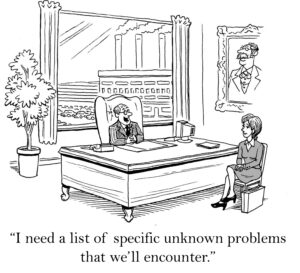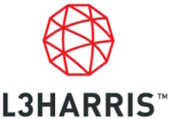Navigating Projects

The Appleton Greene Corporate Training Program (CTP) for Navigating Projects is provided by Mr. Williams Certified Learning Provider (CLP). Program Specifications: Monthly cost USD$2,500.00; Monthly Workshops 6 hours; Monthly Support 4 hours; Program Duration 12 months; Program orders subject to ongoing availability.

Personal Profile
Mr Williams has extensive experience in designing, developing, and successfully delivering portfolios, programs, and projects for various entities, both government and enterprise, across the globe. He has worked with organizations in Australia, Asia, the United Kingdom, Europe, New Zealand, and Fiji. Recently, he has been leveraging his expertise for numerous organizations to craft portfolio, program, and project frameworks along with attendant processes and procedures. This includes designing and implementing the establishment of portfolio management offices for international enterprises and government organizations. On their behalf, he has also delivered facilitated training workshops and one-on-one mentoring to support them, ensuring they are well-equipped for success.
During his career, Mr Williams has held various roles managing and delivering a wide range of strategic programs and projects, transformation programs, rollouts, integrations, upgrades, and migrations, both ICT and Business focused, for the public and private sectors. He is also an expert in process and procedure usage and is often called upon to provide gateway assurance, and organizational maturity uplifts to government departments and international organizations. He has vast experience in business transformation, strategy and scaling, including designing, developing, and implementing end-to-end business change processes and controls to support portfolios, programs, and projects.
Some of his recent personal achievements include developing a specialist ICT Portfolio Management Framework, the first of its kind for the Queensland State Government. Furthermore, he led the development and implementation of an IT PMO practice for an international enterprise based in Sydney. His efforts resulted in the successful establishment of a comprehensive IT PMO practice, complete with a clear vision, strategy, and roadmap for success.
His service skills include portfolio, program, and project management delivery process improvement and performance; process development and testing; business maturity consulting; planning, developing and establishing PMOs; team management and leadership; business case development; management of risk; strategic discovery and planning; ICT, Cloud and On-premises Solutions Management and Delivery
To request further information about Mr. Williams through Appleton Greene, please Click Here.
(CLP) Programs
Appleton Greene corporate training programs are all process-driven. They are used as vehicles to implement tangible business processes within clients’ organizations, together with training, support and facilitation during the use of these processes. Corporate training programs are therefore implemented over a sustainable period of time, that is to say, between 1 year (incorporating 12 monthly workshops), and 4 years (incorporating 48 monthly workshops). Your program information guide will specify how long each program takes to complete. Each monthly workshop takes 6 hours to implement and can be undertaken either on the client’s premises, an Appleton Greene serviced office, or online via the internet. This enables clients to implement each part of their business process, before moving onto the next stage of the program and enables employees to plan their study time around their current work commitments. The result is far greater program benefit, over a more sustainable period of time and a significantly improved return on investment.
Appleton Greene uses standard and bespoke corporate training programs as vessels to transfer business process improvement knowledge into the heart of our clients’ organizations. Each individual program focuses upon the implementation of a specific business process, which enables clients to easily quantify their return on investment. There are hundreds of established Appleton Greene corporate training products now available to clients within customer services, e-business, finance, globalization, human resources, information technology, legal, management, marketing and production. It does not matter whether a client’s employees are located within one office, or an unlimited number of international offices, we can still bring them together to learn and implement specific business processes collectively. Our approach to global localization enables us to provide clients with a truly international service with that all important personal touch. Appleton Greene corporate training programs can be provided virtually or locally and they are all unique in that they individually focus upon a specific business function. All (CLP) programs are implemented over a sustainable period of time, usually between 1-4 years, incorporating 12-48 monthly workshops and professional support is consistently provided during this time by qualified learning providers and where appropriate, by Accredited Consultants.
Executive summary
Navigating Projects
Why this Course
Organizations today are changing dramatically. There is a recognized need to respond to change in a timely manner to maintain market share amidst the prevailing political, economic, societal, technical, legal, environmental, ethnic, and demographic challenges. Adopting and maintaining the right strategy and practicing good processes and procedures are essential for staying competitive. The need for executives, senior stakeholders, and management to understand portfolio, program, and project management is not a luxury but a necessity. Although senior managers may not be functioning as project or program managers, they may be the sponsors for or providing governance to specific or multiple programs or projects. This makes it essential for influencers and implementers at all levels to understand the project and program processes and procedures used to enable them to work together to accomplish change.
This course addresses the inexorable risk in strategic leadership, which requires a truly understanding of the value of program and project management and how it is applied. Underappreciation of program and project management techniques and disciplines, especially among chief executives and senior management, can lead to money being wasted on initiatives that fail to meet their strategic objectives. In addition, not having the appropriate structure and culture for solid program and project management coupled with a haphazard or chaotic approach to using the right tools is a recipe for organizational failure.
It’s important to note that this course is not about turning the executive branch into hands-on program and project managers or about making everyone in the organization skilled in delivering change. However, to be an effective executive and proactive member of the organization, a basic understanding of how program and project management work is essential. This understanding also gives due weight to the advice and input of its practitioners. This course is designed to engage all levels of the organization, from executives to senior management and stakeholders. It provides an essential understanding of program and project delivery, helping to bridge the communications gap between influencers and implementers. This increased understanding fosters collaboration and support, boosting program and project success rates and reducing collective risk.
Understanding the Difference
Since programs and projects are used for an almost unlimited variety of change types, industries, and deliverables, there are many methods and frameworks for delivering products and services. This program enables delegates to gain familiarity with the key elements of established portfolio, program and project methodologies and frameworks. This assists them in making an informed choice for their business as to what works for them and how to incorporate relevant processes and procedures into their existing business environment. It also helps delegates to achieve a working understanding of the vocabulary used, the methods and techniques applied, and knowledge of how these methods can be blended and, more importantly, tailored to their specific business needs.
Delegates gain access to modern multidisciplinary portfolio, program, and project management skills, best of breed toolkits and relevant and easily adopted processes, procedures, and tools, how to choose the right ones for their organization and the reasons to use them.
Course Relevance
This course is relevant and essential to all who attend as it delivers a practical approach to achieving successful change, whether through new product development and delivery or through achieving specific and strategic outcomes. Those who will benefit from attending include all stakeholders involved in selecting and delivering business change initiatives: Senior Responsible Owners (SROs); Board of Management members; Management Boards and Directors of Change; CEOs, COOs, CFOs; Stakeholders at all levels; Portfolio, Program, Project management; Business Change and Benefits managers; business case writers, project appraisers and auditors and essential change deliverers.
Learning Program Structure
This program provides monthly modules over twelve months. Within each module, examples of frameworks and methodologies are presented and analyzed, and supporting processes and procedures are presented and discussed in simple and understandable language. During these modules, delegates are shown how to conduct the required research and analysis to decide what is relevant for their business or organization. Course participants will gain clear insights and practical implementation strategies into how high-performing program and project processes and procedures can be defined, tailored and incorporated for maximum benefit to their organization.
Each module has a standardized framework and approach featuring an introduction to the subject matter and an in-depth analysis of featured processes and procedures. Each will provide examples of creating, developing and implementing exemplar strategies, processes and procedures and how to maintain them. This approach teaches the delegates how to tailor and implement a successful application of the methodology, platform, supporting processes and procedures being discussed, including the benefits and disbenefits of each. Ultimately, delegates will learn the characteristics of good practice that deliver change through programs and projects leading to a valuable return on investment and how to manage the innovation pipeline and successful outcomes through applied portfolio management.
Innovation Pipeline
This introductory module introduces the concept of the ‘innovation pipeline’, which is essential in today’s business and product development environment. We delve into the process of creating and delivering new ideas, implementing business changes, restructuring, and introducing new products and services.
Organizational Governance
This module focuses on aligning the delivery of initiatives with the organization’s strategic direction. It examines the application of start-up and closure controls to initiatives and how alignment with the organization’s strategic direction is maintained throughout the initiative’s lifecycle.
 Management Controls
Management Controls
In module three, we will be discussing the internal controls utilized by initiatives, as well as the processes and procedures that help to maintain the overall direction throughout the lifecycle. This module emphasizes the significance of establishing appropriate breakpoints for initiatives, which allows for potential redirection or termination as deemed necessary by the controlling body.
Benefits Management
The benefits management module identifies and demonstrates the processes and procedures needed to define, quantify, and manage the value an organization anticipates gaining from investing in a particular program or project.
Finance Management
Finance is an essential resource that needs to be a primary focus when starting and managing projects. This module shows how to estimate and assess a project’s potential costs within a formal business case and how to categorize and manage costs throughout the investment lifecycle.
Resource Management
This module covers the management of all types of resources required to deliver initiatives. It discusses how the key element of resource management is the process of acquiring resources on time and how supplier sources can be utilized to maximize the effective use of resources.
 Risk Management
Risk Management
The management of risk module examines the processes and procedures that organizations should use to handle potential risks and opportunities stemming from initiatives and how to maintain a balanced focus on the two. It outlines appropriate management actions to reduce identified risks.
Stakeholder Management
The success of any initiative depends on the involvement of stakeholders at various levels, both within and outside the organization. It’s essential to analyze their involvement and communicate effectively to garner support and engagement in order to achieve objectives.
Program Management Frameworks
Program management involves the planning, execution, and management of multiple related projects to achieve strategic, business, or organizational objectives in a coordinated manner. Participants will learn how to determine the optimal methodology for their organization and whether to choose internal or external program management providers.
Project Management Frameworks
Project management encompasses the initiation, planning, execution, and oversight of new initiatives or changes within an organization using specific project processes and principles. Participants will learn how to determine the most suitable methodology or combination of methods for their organization and whether to opt for internal or external project management providers.
Enterprise agility

Portfolio Management and Action Plan
Portfolio management involves selecting, prioritizing, and controlling an organization’s programs and projects in alignment with the organization’s strategic objectives and delivery capabilities. Participants are taught how to design, develop, and implement an action plan to introduce and leverage the knowledge and skills obtained from this course for the benefit of their organization.
The Benefits of this Program
By the end of this twelve-month program, participants will recognize how they and their organization can benefit from implementing the processes and procedures covered in this course. They will understand both the ‘why’ and ‘how’ business needs to implement a solid framework of innovation, portfolio, program and project management and delivery. Delegates will have been imbued with the knowledge and skills to begin planning, developing, and implementing a framework for change based on good practice. As a result of this study program and course work, delegates will be capable of effectively communicating the advantages of adopting a specific innovation, portfolio, program, and project framework. They will also possess the requisite expertise to confidently apply the learned processes, procedures, and platforms to their organization’s advantage.
Curriculum
Navigating Projects – Part 1 – Year 1
- Part 1 Month 1 Innovation Pipeline
- Part 1 Month 2 Organizational Governance
- Part 1 Month 3 Management Controls
- Part 1 Month 4 Benefits Management
- Part 1 Month 5 Finance Management
- Part 1 Month 6 Resource Management
- Part 1 Month 7 Risk Management
- Part 1 Month 8 Stakeholder Management
- Part 1 Month 9 Program Management Frameworks
- Part 1 Month 10 Project Management Frameworks
- Part 1 Month 11 Enterprise agility
- Part 1 Month 12 Portfolio Management and Action Plan
Program Objectives
The following list represents the Key Program Objectives (KPO) for the Appleton Greene Navigating Projects corporate training program.
Navigating Projects – Part 1 – Year 1 
- Part 1 Month 1 Introduction and Preparation – This first workshop introduces the Innovation Pipeline, a crucial concept in today’s business and product development landscape. This is the process of developing and delivering new ideas, business changes, and products. This first workshop provides a detailed and multifaceted strategy that equips delegates with the necessary skills, processes, and knowledge to develop and implement an end-to-end Innovation Pipeline. Additionally, it provides an alternative approach for improving, fixing, or replacing an underperforming or broken pipeline. Ultimately, this module is designed to boost an organization’s business development efforts and contribute positively to an organization’s growth and sustainability.
- Part 1 Month 2 Organizational Governance – This module looks at how to align the delivery of initiatives with the organization’s strategic direction. It considers how the start-up and closure controls are applied to initiatives and how alignment with the organization’s strategic direction is maintained during the initiative’s lifecycle. Most importantly, this discusses how organizations choose the right initiatives in line with good investment practices. This module also shows delegates how to provide organizational management control processes and procedures, including forming and supporting management boards, undertaking assurance reviews, and the benefits of risk profiling.
- Part 1 Month 3 Management Controls – Module three covers the internal controls used by initiatives and what processes and procedures maintain the direction of travel throughout the lifecycle. It considers the importance of initiatives having appropriate breakpoints established, allowing for redirection or termination by the controlling body. It discusses how and what internal controls are necessary and how to develop and implement them. The methods provided enable the formulation of appropriate structures, roles, and responsibilities necessary for the creation of guiding control groups that facilitate effective decision-making. Delegates learn how to deal with risks and issues through change control, what to do when things go wrong by using a structured approach and how to provide support with regular and appropriate impact assessments.
- Part 1 Month 4 Benefits Management – The benefits management module identifies and demonstrates the processes and procedures needed to define, quantify, and manage the value an organization anticipates gaining from investing in a particular initiative, program or project. It also shows how to assign benefits ownership, measure and track benefits gained and how those benefits are to be recorded. It establishes how to clearly define what a benefit means to a particular organization and how to recognize and distinguish the difference between benefits and outcomes. It shows how to create a benefits realization management process with supporting procedures starting with defining requirements at the beginning of the initiative, creating a benefits profile, and recording benefits during the initiative and beyond.
- Part 1 Month 5 Finance Management – Finance is an essential resource that must be a key focus for initiating and controlling initiatives. This module demonstrates how to capture and evaluate the likely costs of an initiative within a formal business case and how to categorize and manage costs throughout the investment lifecycle. It will also demonstrate methods of developing formal funding requests for new and existing initiatives. Delegates will gain an understanding of the finance management process, including how it ensures the availability and scheduling of funds to support investment decisions. However, this module’s focus is not just on finance but takes the delegate through developing a business case. Delegates will discover how a well written business case is used to provide the evaluated costs of the initiative, define its value to the business and contain a financial appraisal of the possible options. Delegates will discover how to ensure the business case is at the core of decision making during the initiative’s lifecycle. Also, it shows how to use the business case to provide the problem statement and details of the analysis of cost to benefit associated with alternative actions and options that led to the preferred solution.
- Part 1 Month 6 Resource Management – This module covers the management of all types of resources required to deliver initiatives. These resources include human resources, buildings, equipment, supplies, information, tools, and support teams. This module cultivates expertise in the processes of acquiring resources, how supplier sources are utilized to maximize the effective use of resources, and how they are planned for and managed. It demonstrates how to develop the process and supporting procedures to identify and manage all types of resources required to deliver different initiatives. It discusses how the key element of resource management is the process of acquiring resources on time and how supplier sources can be utilized to maximize the effective use of resources. Delegates will discuss, analyze, and learn how to use capacity planning and prioritization to enable effective resource management.
- Part 1 Month 7 Risk Management – The risk management module reviews the processes and procedures organizations need to manage threats and opportunities enabled by initiatives and how to maintain a balanced focus on threats and opportunities. It outlines appropriate management actions to mitigate identified risks. It shows how risk management needs to approach the variety of risks that can affect initiatives from internal and external sources. Risk management involves identifying triggers and using innovative mitigation strategies to reduce risk likelihood and impact. Delegates gain the skills to embed the management of risks within the initiative and business lifecycle and what supporting processes and structures need to be put in place to ensure that the appropriate levels of rigor are being applied. Delegates will also gain an understanding of the types of intervention that can be undertaken and what types of changes can be made to manage risks.
- Part 1 Month 8 Stakeholder Management – This module illustrates how stakeholders at different levels, inside and outside the organization, are vital to the success of any initiative, how to analyze membership and how to communicate with them effectively to achieve objectives in terms of support and engagement. This module teaches how to manage stakeholders and their relationship with the initiative as it progresses through its lifecycle to cope with their expectations and how to prepare stakeholders for any changes that may occur. It explains stakeholder analysis and communications planning, effective stakeholder identification and the use of the many different communications channels available. Delegates also master how to develop and understand stakeholder management strategy and communications planning and how to produce lessons learned documentation that can lead to better stakeholder engagement in the future.
- Part 1 Month 9 Program Management Frameworks – Program management involves planning, executing, and managing multiple related projects to achieve strategic, business, or organizational objectives in a coordinated manner. With the multitude of program management frameworks available in the market, it is essential delegates understand the differences so that when confronted with choosing which one is relevant and a good fit for their organization, they can make an informed decision. This module provides a comprehensive understanding of what constitutes program management and discusses the main principles and themes. It also considers what program methodologies are available, both mainstream and alternative, taking a deep dive into their approaches, methods, reporting process and their pros and cons. It will discuss the impact of program management on executive decision making and the effect of organizational maturity as a success factor. Delegates will be shown how to decide the optimal methodology for their organization and whether to choose internal or external program management providers.
- Part 1 Month 10 Project Management Frameworks – Project management involves initiating, planning, executing, and managing new initiatives or changes in an organization through specific project processes and principles. There are a multitude of recognized project management frameworks available in the market therefore, it is essential that delegates understand the differences so that when confronted with choosing which one is relevant and a good fit for their organization, they can make an informed decision. This module continues the discussion of the main differences between program and project management, leading to a comprehensive understanding of the essence of project management. It also discusses how projects can meld with programs and become the product delivery mechanism for their parent programs. It discusses what project methodologies are available, both mainstream and alternative, taking a deep dive into their approaches, methods, reporting process and their pros and cons. It will demonstrate the impact of project management on executive decision making and the effect of organizational maturity as a success factor. Delegates will discover how to decide the right methodology or combination of methods for their organization and whether to choose internal or external project management providers.
- Part 1 Month 11 Enterprise agility – Many organizations are experiencing increasing customer demand and expectation. They need to face the rise of disruptive competitors shaking up established industries. They must also understand which legacy processes no longer fit in today’s environment and what types of company cultures fail to support rapid go-to-market. This module demonstrates how efficient and focused program and project management, when practiced across the organization, can help achieve this state of enterprise agility. It prepares delegates to become change enablers for their organization. It provides delegates with the knowledge and guidance to engage with, understand, and influence change by embracing enterprise agility and lean ways of working. Delegates will be shown what being an agile organization means and why it is essential to be agile in today’s marketplace. It also establishes an understanding and recognition of the differences between being agile and using an Agile program and project methodology. Participants will learn how to establish an environment that promotes enterprise agility and manages the impact of market volatility, uncertainty, complexity, and ambiguity (VUCA). Delegates will also be introduced to the increasing role of technology in the market and how this has led to a rapid rise in market ‘Disrupters’ becoming the current and new market participants seeking to change the established ‘knowns’ and ‘norms’ of particular market sectors. This module creates an understanding of the need for everyone to engage in business value creation and how to optimize the value delivered. It also defines efficient and focused program and project management processes and procedures. Delegates gain the benefit of understanding how to grow a culture and framework of enterprise agility. The methods provided will start them on the path to growing successful business environments where everybody adds value through effective program and project management.
- Part 1 Month 12 Portfolio Management and Action Plan – Portfolio management is the selection, prioritization and control of an organization’s programs and projects in line with the organization’s strategic objectives, investment strategy and capacity to deliver. This module shows delegates that every organization has a portfolio, whether they know it or not. It then discusses, describes, and demonstrates how effective portfolio management is used to manage all programs and projects across the organization competing for resources, time and money, and, critically, senior management attention. In describing the portfolio initiative pipeline, this module delves into the methods for delivering and managing business change, and optimal projects and programs that suit the organization’s strategic objectives. It also shows delegates how to execute projects and programs to optimize value for customers and other stakeholders and defines the benefit of focusing on the change delivered by project and program management rather than the work of individual unstructured initiatives. Delegates will build an understanding of how to apply and tailor the portfolio management process to analyze portfolio data, documentation, and roles in a practical context. This module demonstrates how portfolio management helps senior executives and decision-makers to maximize return on investment and to start and sustain business change and transformation. Delegates will gain the knowledge to design, develop and create an action plan for introducing, implementing, and utilizing the knowledge and skills obtained from this course to benefit their organization.
Methodology

Navigating Projects
n today’s rapidly evolving business landscape, organizations face a multitude of challenges. To excel and thrive in the current marketplace, it is crucial for all members of the workforce, regardless of their role, to grasp the fundamentals of program and project management. This program promotes this understanding and provides the necessary skills to ensure that every individual can contribute to successful change initiatives.
This course empowers individuals from various backgrounds and roles to grasp the value of innovation, program and project management, enabling them to participate actively in strategic initiatives. Attendees learn how to create an inclusive organizational culture that fosters effective program and project management, promoting equality and diversity. They also discover how improved understanding and communication between all members of the workforce enhances collaboration, boosts success rates, and reduces risks associated with programs and projects.
Programs and projects encompass a wide range of change types, industries, and deliverables, each requiring tailored approaches. All participants will gain a comprehensive understanding of prevailing program and project methods and frameworks, enabling them to make informed choices for their specific business needs. Consequently, they will be equipped to make informed decisions tailored to their unique business requirements confidently. Participants are encouraged and assisted in acquiring modern project and program management skills from various disciplines. Attendees explore what constitutes best-of-breed toolkits, easily adoptable processes and procedures, and how to develop and implement them. Every delegate will learn how to select the suitable methodologies and tools for their organization’s unique needs.
Navigating Projects is designed to be inclusive and relevant to all members of the workforce, including but not limited to:
• Executives, Managers, and Team Members
• Management Boards and Directors of Change
• Senior Responsible Owners (SROs) and Sponsors
• CEOs, COOs, CFOs
• Stakeholders at all levels
• Portfolio, Program, Project management
• Business Change, and Benefits Managers
• Business case writers, project appraisers, auditors, and change deliverers
This is a twelve-month program with monthly modules, each focusing on different program and project management aspects. Each module follows a standardized framework. An initial introduction provides participants with an in-depth understanding of the module’s core concepts and relevance. It then introduces them to prevailing frameworks and methodologies and how to adapt and implement them.
All modules provide in-depth discussions and presentations of supporting processes and procedures. Participants are guided on conducting research and analysis to make informed decisions about what approach is appropriate for their organisations and what processes and procedures best meet their needs.
Throughout, attendees will learn the key characteristics of effective practices, gain the ability to recognize the traits that lead to successful change through programs and projects and acquire insights and strategies for implementing high-performing processes and procedures in their organizations. Furthermore, participants will be shown the many ways to develop, customize, and integrate processes and procedures to support their preferred methodologies and platforms to achieve maximum benefits.
Delegates learn how to develop and manage the initiative delivery pipeline and learn how to select the best investment options and oversee and ensure successful outcomes through the applied program, project and portfolio management principles.
By the end of this course, all participants will have acquired the necessary knowledge and tools to navigate the complex landscape of portfolio, program, and project management successfully. This will ultimately pave the way for a valuable return on investment for their organizations, based on the attendees’ comprehensive understanding of leveraging and applying proven principles of portfolio, program, and project management across their organizations.
By enrolling in this course and participating in all twelve modules, participants will gain an extensive grasp of program and project methods and frameworks. As a result, they will be able to confidently make well-informed decisions that are tailored to their specific business needs.

Case Study:
One well-known company that re-established itself through the use of program, project, and portfolio management processes and procedures is IBM (International Business Machines Corporation).
IBM, a multinational technology company founded in 1911, has experienced several transformations throughout its history. By the early 1990s, IBM faced significant challenges, including declining revenues, high costs, and a fragmented product and services portfolio. To re-establish itself as an industry leader, IBM implemented a series of strategic changes using program, project, and portfolio management.
IBM conducted a thorough evaluation of its product and service offerings using established portfolio management analysis techniques. Based on the results, it decided to sell off non-core businesses and concentrate on high-value areas such as software and services. This portfolio rationalization helped streamline resources and reduce costs for the organization.
IBM embarked on a project to transform its business into an e-business. This initiative aimed to shift from a product-centric to a services-centric model. Project management methodologies ensured that this transformation was executed efficiently and effectively. IBM also established its Global Services division to provide IT services and consulting to clients worldwide. Project management played a key role in organizing this new division and delivering services to clients.
IBM initiated the eServer program, which involved the development of a new line of servers designed for e-businesses. Program management ensured that different projects within this program, including hardware development, software integration, and marketing, were coordinated for a successful launch. IBM expanded its software services through various programs. Program managers oversaw the development and delivery of software solutions, contributing to IBM’s growth in the software sector.
IBM’s strategic use of program, project, and portfolio management processes and procedures led to a remarkable re-establishment of the company. IBM’s focus on services, software, and emerging technologies drove revenue growth, transforming it into a global IT services leader. Portfolio rationalization techniques and the judicious use of program and project processes and procedures contributed to their overall cost optimization measures which significantly improved IBM’s cost structure. By adopting a framework of good practice portfolio, program and project management and re-establishing proven processes and procedures, IBM became a leader in enterprise software and services, solidifying its position in the technology industry.
IBM’s successful transformation demonstrates how the systematic application of program, project, and portfolio management processes and procedures can help a company re-establish itself and regain industry leadership even after facing significant challenges.
Industries
This service is primarily available to the following industry sectors:
Government
The term “global government market” refers to a worldwide marketplace where governments at different levels, such as national, regional, and local, purchase various goods, services, and solutions for their operational and strategic needs. This market includes different agencies, offices, and military departments and spans multiple sectors such as defense, healthcare, education, infrastructure, technology, transportation, and more.
Both public and private sector entities engage in procurement and contracting with governmental bodies in this market, making it a crucial driver of economic activity. It represents the third key market in today’s global economy, alongside consumer and business.
The global government market serves various government agencies and departments, each with specific needs and budgets. These agencies may include healthcare authorities, defense ministries, public schools, transportation departments, and others. Government spending constitutes a significant portion of many countries’ GDP. In 2022, the global government services market was valued at approximately US$ 247 billion. This is expected to grow in value to approximately US$ 447 billion by 2027. Therefore, this market’s obvious economic impact is substantial.

Banking and Finance
The financial services sector encompasses various organizations, including banks, credit unions, investment firms, insurance companies, asset management companies, payment processors, and other financial intermediaries. These entities provide diverse financial products and services to individuals, businesses, and governments, such as deposit accounts (savings and checking), loans (personal, business, and mortgages), credit cards, and payment processing.
The main financial services are lending, payments, insurance, investments, and foreign exchange. Many individuals, corporations, governments, and investment institutions use the services. These form the bedrock for numerous industries dependent on loans and credit to facilitate their day-to-day operations.
The global financial services sector is crucial in supporting economic activities, wealth management, and capital allocation, making it a vital part of modern economies. Banking and finance are the leading sectors worldwide in earnings and equity market capitalization, contributing approximately 20-25% to the global economy. In 2020, the global financial services market was valued at roughly $20.5 trillion. The market grew from $25.8 trillion in 2022 to $28 trillion in 2023 and is projected to expand to $37.5 trillion in 2027.
Healthcare
The healthcare market is a vast and complex sector encompassing a wide range of goods, services, and activities related to maintaining and improving health. It includes healthcare providers, pharmaceutical and biotechnology companies, medical device manufacturers, health insurance, telemedicine, and more. This industry includes hospitals, clinics, nursing homes, and other healthcare facilities. Telemedicine platforms and digital health solutions are used in various areas to facilitate remote healthcare consultations, remote patient monitoring, and mobile apps and wearable devices for managing health. As a result, there is a growing demand for more significant investment in developing, upgrading, and supporting IT systems and platforms.
Healthcare IT and software companies are also heavily invested in developing healthcare information technology solutions such as electronic health records (EHRs), practice management software, and data analytics. These solutions are aimed at improving healthcare operations and providing better patient care. This market is proliferating worldwide, mainly because many old and outdated systems are approaching their end-of-life and require urgent replacement.
The aging global population is driving increased demand for healthcare services, long-term care facilities, and solutions to address age-related health conditions. There is also a growing emphasis on preventive healthcare, wellness programs, and lifestyle management to reduce the burden of chronic diseases.
The global healthcare market is characterized by innovation, ongoing research, and a focus on improving patient outcomes. It faces challenges related to cost control, access to care, healthcare disparities, and ethical considerations. As populations grow and age, healthcare will continue to be a critical and evolving sector with significant economic and societal implications. This is shown by how the global healthcare services market grew from roughly US$ 7,500 billion in 2022 to approximately US$ 8,000 billion in 2023. The healthcare services market is predicted to continue to grow to at least US$ 9,900 billion by the end of 2027.

Technology
The tech industry, also known as the global technology market, is a vast and dynamic array of products, services and innovations that drive progress and change across various sectors of the economy and society. This industry consists of several sectors, including hardware manufacturing, which leading companies like Apple, IBM, and Samsung deliver. The software sector involves developing and distributing computer programs and applications, from operating systems and productivity software to gaming and entertainment applications. Some of the major players in this field are Microsoft, Google, and Adobe.
Cloud computing services like AWS, Azure, and Google Cloud offer on-demand internet-based access to computing resources, software applications, and data storage. The Internet of Things (IoT) enables internet connectivity for physical devices, allowing data collection, analysis, and automation across industries, including healthcare, smart homes, and manufacturing.
The field of Artificial Intelligence (AI) is a rapidly growing industry creating intelligent algorithms and systems capable of performing tasks requiring human intelligence. These tasks include speech recognition, natural language processing, and machine learning. Companies like IBM, Google, and NVIDIA are leaders in AI research and development. The technology sector also includes such specialist areas as cybersecurity, e-commerce, social media, robotics, clean energy technology and gaming. Examples of companies involved in the games market include Sony, Microsoft, and Tencent.
The global technology market is marked by rapid innovation, competition, and continuous evolution. Technology is significantly shaping how everyone lives and works, impacting industries across healthcare, finance, entertainment, and transportation.
As technology continues to advance, it will undoubtedly remain a significant driver of economic growth and societal change. This is evident from the growth of the global information technology (IT) market, which increased from an estimated US$ 8.18 trillion in 2022 to US$ 8.52 trillion in 2023. The information technology market is projected to grow even further to an estimated US$ 11.99 trillion by 2027.
Telecommunications
The telecommunications services sector, often called the telecom industry, includes a variety of companies and organizations that provide communication services and infrastructure for transmitting voice, data, and multimedia content over long distances. This sector is crucial in connecting people, businesses, and devices, enabling global communication.
This services sector includes companies and entities developing, maintaining, and operating networks, systems, and services that facilitate communication among individuals, organizations, and devices. This sector offers diverse products and services at the heart of the global network infrastructure, where companies build and maintain the physical infrastructure necessary for communication, including fiber optic cables, satellite systems, and cellular towers. Telecommunications providers also offer wireline (fixed-line) and wireless (mobile) communication services, such as voice calling, text messaging, and mobile internet access, without which there would be no global communications or Internet services.
The role of telecommunications providers is crucial in connecting Internet of Things (IoT) devices, facilitating communication and data sharing between them and central systems. Additionally, international telecom companies and undersea cable providers are responsible for enabling global connectivity, allowing seamless communication and data exchange between countries.
Cloud communications and video conferencing have become increasingly important in recent years, and global events, such as the COVID-19 pandemic, have further highlighted their significance. Cloud communications and video conferencing development, maintenance, and support have become essential components of modern business operations. They promote flexibility, cost-efficiency, and global connectivity while supporting remote work and virtual collaboration. Their importance will continue growing as technology evolves and businesses seek innovative ways to communicate and collaborate effectively.
The telecommunications services sector is highly dynamic, with constant technological advancements and evolving consumer demands. Overall, the telecommunications services sector is instrumental in shaping modern communication, enabling businesses, governments, and individuals to connect and exchange information from anywhere in the world, local or global. The global telecommunications services market sector is expected to grow from approximately US$ 958 billion in 2022 to US$ 1,089 billion in 2023 and is forecast to reach $1,906 billion in 2027.
Transport and Logistics
The transport and logistics services sector encompasses many businesses and activities that move, store, and manage goods, people, and information. This sector is crucial for the smooth movement of goods and services and plays a key role in global trade and commerce. The transport and logistics sector includes diverse organizations and services dedicated to the physical and digital movement of goods, passengers, and information.
Companies within this sector provide various modes of transportation, including road (trucking and courier services), rail, air, maritime (shipping), and intermodal (combining multiple methods). These services facilitate the movement of goods and people across local, regional, and international distances. This includes freight forwarding, warehousing and distribution, courier and delivery services.
Furthermore, many organizations in this sector specialize in supply chain management involving the planning, monitoring, and optimization of the entire supply chain, from sourcing raw materials to delivering finished products. It encompasses logistics, procurement, production, and distribution.
The transportation sector increasingly relies on technology solutions such as route optimization, track-and-trace systems, transportation management systems, and warehouse management systems to improve efficiency and visibility. Additionally, there has been a significant rise in investments in transportation infrastructure, including airports, ports, railways, roads, and logistics hubs. All of these are essential for the efficient movement and storage of goods.
The transport and logistics services sector is essential for various industries, including manufacturing, retail, e-commerce, healthcare, and agriculture. It ensures the timely delivery of goods, minimizes transportation costs and supports economic growth by connecting producers and consumers across the globe. Additionally, it plays a significant role in addressing supply chain resilience and sustainability challenges in an increasingly interconnected world.
The transport and logistics services sector is valued in 2022 at around US$ 262 Billion and is projected to reach an estimated value of US$ 571 Billion by 2030. Furthermore, it is estimated that the roadways category in Logistics market sales will account for more than 44% of the market share by 2030.
Locations
This service is primarily available within the following locations:

Sydney
Sydney (New South Wales), Australia’s largest and most populous city, is pivotal in the nation’s economy. It has a diverse economy encompassing finance, technology, tourism, education, healthcare, and more. Sydney is also a significant financial hub in the Asia-Pacific region and hosts the headquarters of many Australian banks, financial institutions, and multinational corporations within the Central Business District (CBD), a focal point for these activities.
The city also hosts a burgeoning technology and startup ecosystem. The city’s tech industry, often called “Silicon Beach,” is characterized by numerous tech startups, research centers, and innovation hubs. It is the base of several prestigious universities and educational institutions.
The government of New South Wales has made substantial investments in infrastructure projects, with a continued focus on large-scale capital initiatives that improve road and public transportation systems. Additionally, the government has been actively involved in planning, developing, and investing heavily in education and healthcare improvements.
The Gross Regional Product of the City of Sydney is presently estimated to be around US$100 billion, which is equivalent to 21.32% of the Gross State Product (GSP) of the state. Sydney is the capital city of New South Wales, which has an estimated economic value of almost US$450 billion, accounting for approximately one-third of the nation’s economic output and being home to nearly one-third of Australia’s population.

Brisbane
Brisbane is the capital city of the state of Queensland and, as one of Australia’s major economic centers, continues to experience steady economic growth. Its economy is diverse, with strengths in education, healthcare, information technology, finance, construction, and tourism. It also has a growing healthcare and biotechnology sector, with research institutes and companies working on medical advancements and innovations. Queensland, including Brisbane, has a significant mining and resources sector, with coal and natural gas extraction notable contributors to the state’s economy.
The city and surrounding area have seen ongoing infrastructure development projects, including upgrades to transportation networks, roads, and public transport. These projects aim to improve connectivity and support economic growth. The city has a growing healthcare and biotechnology sector, with research institutes and companies working on medical advancements and innovations.
The city has a diverse job market, with opportunities in various sectors and relatively low unemployment compared to the national average. The Queensland government continues to implement economic stimulus measures to maintain this situation. It also provides heavy investment in healthcare, infrastructure, and education, partially in response to Queensland being awarded the hosting of the Olympics in 2032.
Brisbane City’s Gross Regional Product is presently estimated to be worth US$ 98 billion, accounting for 37.11% of Queensland’s Gross State Product (GSP). The state boasts a thriving economy worth over US$ 232 billion, supported by a diverse range of industries, including a robust services sector. Over the last two decades, Queensland’s economic growth has consistently outperformed the national average.

Singapore
Singapore boasts one of the most advanced and developed economies in Asia and the world. It is often referred to as a global financial hub. The economy is diverse, with strengths in several key sectors, including finance, trade, manufacturing, technology, and services. It is a major global financial center hosting numerous banks, financial institutions, and multinational corporations.
The city-state’s strategic location has made it a prominent hub for international trade and shipping. The Port of Singapore is one of the busiest and most important in the world.
Singapore has been enthusiastically promoting innovation and technology development. It also has a well-developed manufacturing sector focusing on electronics, pharmaceuticals, chemicals, and precision engineering. Singapore actively fosters an environment conducive to startups and entrepreneurship, with various government schemes and incentives to support innovation and small businesses. It does this in part by investing heavily in its efficient transportation and logistics infrastructure. It also has a skilled and productive workforce supported by high investment in education and training.
The Singaporean government continues to implement a wide variety of economic initiatives and policies to attract investments, promote research and development, and strengthen key industries. It also has an extensive network of free trade agreements (FTAs) with various countries, facilitating international trade and investment.
Singapore’s Gross Domestic Product (GDP) reached US$ 467 billion in 2022, accounting for 0.21% of the global economy. It is projected to increase to US$ 474 billion by the end of 2023, and present econometric models indicate that the country’s GDP will continue to grow in the long term, reaching US$ 486 billion in 2024 and US$ 498 billion in 2025.

Jakarta
Jakarta is the economic and financial hub of Indonesia. It is the country’s leading business, trade, and commerce center. Its diverse economy has strengths in various sectors, including finance, trade, manufacturing, services, and construction. The city hosts the headquarters of many Indonesian banks, financial institutions, and multinational corporations.
Jakarta’s strategic location has made it a key hub for international trade and commerce in Indonesia. Additionally, its manufacturing sector includes textiles, electronics, automotive, and food processing industries. Jakarta’s services sector is well known as a significant contributor to Jakarta’s economy, encompassing industries like tourism, retail, real estate, and professional services.
The city has seen substantial infrastructure development in recent years, with projects to improve transportation. Meanwhile, the construction and real estate sectors have been active, with various commercial and residential developments across the city.
The city has been promoting an entrepreneurial environment, which has led to the rise of startups and small businesses. In addition, the Indonesian government has implemented economic policies and reforms to encourage foreign investment and boost economic growth. They have established special economic zones and incentives for specific industries as well. The city consistently works hard to create a favorable economic climate for businesses.
As of 2021, Jakarta, the capital of Indonesia, is the region with the highest Gross Domestic Product (GDP) in the country. Its nominal GDP was US$ 203.70 billion, which accounts for 17.05% of Indonesia’s total GDP estimated to be US$ 3.246 trillion in 2021.

Kuala Lumpur
Kuala Lumpur is considered the economic and financial center of Malaysia. It is the country’s primary business, trade, and commerce center. Its diverse economy has strengths in various sectors, including finance, manufacturing, services, and tourism. The city is home to Malaysia’s financial district, known as the Golden Triangle, where many banks, financial institutions, and multinational corporations have headquarters.
Kuala Lumpur’s manufacturing sector includes electronics, automotive, machinery, and chemicals. The city’s economy relies heavily on the services sector, such as finance, real estate, retail, and professional services. The city and surrounding areas have created industrial zones and technology parks to support these activities.
Kuala Lumpur’s entrepreneurial ecosystem is growing, with startups and tech companies gaining momentum. The Malaysian government has implemented a number of economic policies and initiatives to attract foreign investment, promote innovation, and bolster economic growth. Meanwhile, Kuala Lumpur has invested in infrastructure projects that include public transportation improvements, expressways, and the Mass Rapid Transit (MRT) system. Kuala Lumpur is central to Malaysia’s robust trade and investment environment.
Kuala Lumpur contributes an estimated 16% of the country’s national production. Its Gross Domestic Product (GDP) was approximately US$ 50 billion in 2022. The Gross Domestic Product (GDP) of Malaysia as of 2022 was valued at approximately US$ 406 billion.

Bangkok
Bangkok is recognized as Thailand’s economic and financial center, serving as the primary driver of the country’s economic activity. It is a significant hub for business, trade, and commerce. The economy is diverse, with strengths in various sectors, including finance, manufacturing, services, tourism, and trade. The city hosts numerous financial institutions, including the Bank of Thailand, commercial banks, and international financial services companies.
Bangkok’s manufacturing sector provides electronics, automotive, textiles, and food processing industries. The services sector is crucial to the economy, encompassing banking, finance, retail, real estate, and professional services. The city and its surrounding areas have numerous industrial zones and factories.
Bangkok has experienced significant real estate and construction development, including commercial and residential projects. Meanwhile, the city is investing in infrastructure projects to address urban congestion and improve connectivity. These activities include the expansion of public transportation and expressways.
Bangkok’s startup and innovation ecosystem is rapidly growing with co-working spaces, tech incubators, and business initiatives. The Thai government has implemented various economic policies and initiatives to promote investment, support small and medium-sized enterprises (SMEs), and progress digital transformation. Additionally, Bangkok plays a central role in Thailand’s strong trade and investment environment. To promote this role the city hosts numerous international trade fairs and exhibitions. Bangkok contributes approximately US$ 230 billion to Thailand’s GDP, which was valued at US$ 495 billion in 2022, representing 0.22% of the global economy.
Program Benefits
Management
- Executive Understanding
- Effective Governance
- Knowledge Management
- Portfolio Excellence
- Methods Standardization
- Program Mastery
- Project Success
- Implementation Skills
- Defined Purpose
- Efficient Budgeting
Operations
- Corporate Agility
- Competitive Edge
- Improved Communication
- Better Decisions
- Practical Approach
- Modern Tools
- Process Customization
- Enhanced Performance
- Productive Workforce
- Optimized Investment
Human Resources
- Reduced Risk
- Inclusive Collaboration
- Greater Success
- Action Plans
- Justified Budget
- Shared Vision
- Improved Culture
- Increased Productivity
- Better Processes
- Focused Innovation
Testimonials
Craveable Brands
“Mr. Williams undertook the developing and implementing of a comprehensive IT Portfolio, Program, and Project Management Office (PMO) practice for our international enterprise-level business located in Sydney, Australia. His strategic vision, meticulous planning, and unwavering dedication were essential to the success of this endeavor.
Under his leadership, we were able to access a wealth of multidisciplinary PMO skills. He developed best-of-breed PM Toolkits and Project Portfolio Management processes and tools with great attention to detail, significantly enhancing our change capabilities. He executed all of this flawlessly.
In summary, Mr. Williams has had a transformational impact on our organization. Through his expertise, leadership, and dedication, our PMO practice has attained new heights.”
L3Harris
“Mr. Williams was given the difficult job of conducting a deep dive health check of a multimillion-dollar program that we were delivering to the Australian Defence Establishment. The program was facing significant challenges and was at risk of faltering.
He not only identified the issues but also developed a detailed action plan, with embedded processes and procedures, to address them. His plan became the cornerstone of our efforts to refocus and rescue the program. Mr Williams guidance was invaluable in helping our company navigate through this challenging period. He not only rescued the initiative, but he also refocused us on the path to success, and we successfully continued delivering to our major client.
Working with Mr Williams was a brilliant experience, and there is no doubt that his expertise will continue to drive success for any organization fortunate enough to engage his services.”
East Coast Apparel
“We sought the help of Mr Williams to establish and execute efficient portfolio processes and procedures for our Australian manufacturing company. Working with him was a delightful experience, as he demonstrated an exceptional level of expertise and was an expert at clarifying the purpose of the tasks and guiding us in acquiring new skills. He delivered what we needed promptly.
Mr. Williams possesses an innate ability to make learning enjoyable and effortless, whether it is through one-on-one mentoring or group training sessions. As a mentor, he assists individuals and organizations in thriving by acquiring new skills and knowledge.”
Australian Government Comcare
“When we embarked on the journey to assess the maturity of our portfolio management practices against industry best standards, we sought an external and unbiased perspective. This quest led us to Mr. Williams, a seasoned expert in portfolio, program, and project management maturity models.
Mr. Williams conducted an independent and thorough maturity assessment of our portfolio management, providing us with invaluable recommendations to enhance our approach. His assessment covered every facet of our internal portfolio functions, from end-to-end capital delivery to portfolio-wide processes, systems, and ways of working.
Mr. Williams successfully delivered insights that have been instrumental in shaping our portfolio management strategies. His expertise and commitment to excellence have truly made a significant impact on our organization.
We wholeheartedly recommend Mr. Williams to any entity seeking to elevate its portfolio management practices to the highest standards.”
PM Solutions
“Over the past five years, Mr Williams, one of our most senior Assurance and Portfolio consultants, has delivered on our behalf more than a hundred successful gated assurance reviews for various government departments and international organizations. He has also provided expert services in maturity assessments, portfolio, program, and project consultancy, as well as training and coaching.
Mr. Williams has been a key contributor to the development of practical ICT portfolio management frameworks, maturity roadmaps, and robust processes and procedures for our clients. His expertise and dedication have consistently delivered positive results for the organizations he has worked with.
We strongly endorse Mr Williams for his valuable contributions, steadfast commitment to excellence, and substantial impact on our clients’ success.”
More detailed achievements, references and testimonials are confidentially available to clients upon request.
Client Telephone Conference (CTC)
If you have any questions or if you would like to arrange a Client Telephone Conference (CTC) to discuss this particular Unique Consulting Service Proposition (UCSP) in more detail, please CLICK HERE.


















